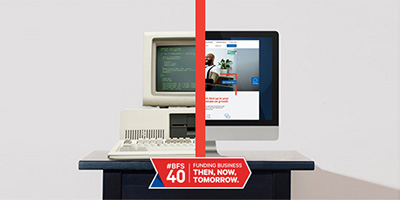Reducing late payments
How to avoid and minimise non-payment
Collecting payments from customers should be a simple, routine and streamlined process, especially if you have credit control procedures and systems in place. Unfortunately, regardless of how effective your invoicing process is, payments do not always happen on time or as planned.
Late payments are costly for business
Almost every business has come across a bad payer. According to Bacs Payment Schemes Limited (Bacs), UK small to medium enterprises (SME's) are owed £14.2 billion in overall late payment debt. For those impacted, this can mean their staff are not paid on time and they have to pay their own suppliers late
“28% of businesses have suffered a bad debt in the last 12 months”Bibby Financial Services SME Confidence Tracker 2022
Effective payment practices
When it comes to payments, there are some simple things you can do to give your business the best chance of reducing late payment from customers. Remember, you are entitled to be paid for what you have done.
To encourage customers to pay promptly and to limit the impact of late payment, you should:
- Get to know your customers and run credit checks before offering credit terms and appropriate credit limits
- Make your payment terms explicit and outline any late payment charges to avoid disputes
- Agree part-payment terms to pay 50% up-front and 50% after completion
- Make sure your administration processes are efficient and send invoices promptly
- Offer various payment options such as direct debit, standing order or credit card
- Start chasing immediately when invoices become due
- Keep up-to-date records to identify any potential issues and, as necessary, take steps to resolve them
Reducing the impact of late payments
Reduce the time you spend dealing with customers' late payments by having:
- Clear terms and conditions: When you've agreed to work with a client send over your terms and conditions for their approval. The more succinct the better, as you're more likely to get it approved quicker.
- Effective invoicing: There is a basic invoice format that you should stick to. Be sure to include an invoice number, a due date and preferred payment option. Also make sure that you send it to the right person.
How to avoid and minimise non-payment
To make sure late payments do not turn into bad debt, you should take a consistent approach and resend your agreed credit terms. This will help to tackle overdue payments and establish where there are any problems.
To keep vital cash inside your business you should:
- Send reminders at least a week before the invoice becomes due
- Call to have an informal conversation to understand why payment is late
- Reach an agreement to resolve any issues and explain how you intend to recover the debt
- Amend your invoice frequency and consider invoicing weekly rather than monthly
- Add fees for overdue payments, which provides an effective deterrent to late payments
- Remove credit terms or reduce credit limits for persistent non-payers
- Consider cashflow funding support and bad debt protection, which provides funding and collection support to businesses, helping to reduce the impact of late payment
- Renegotiate payment terms for a temporary period



